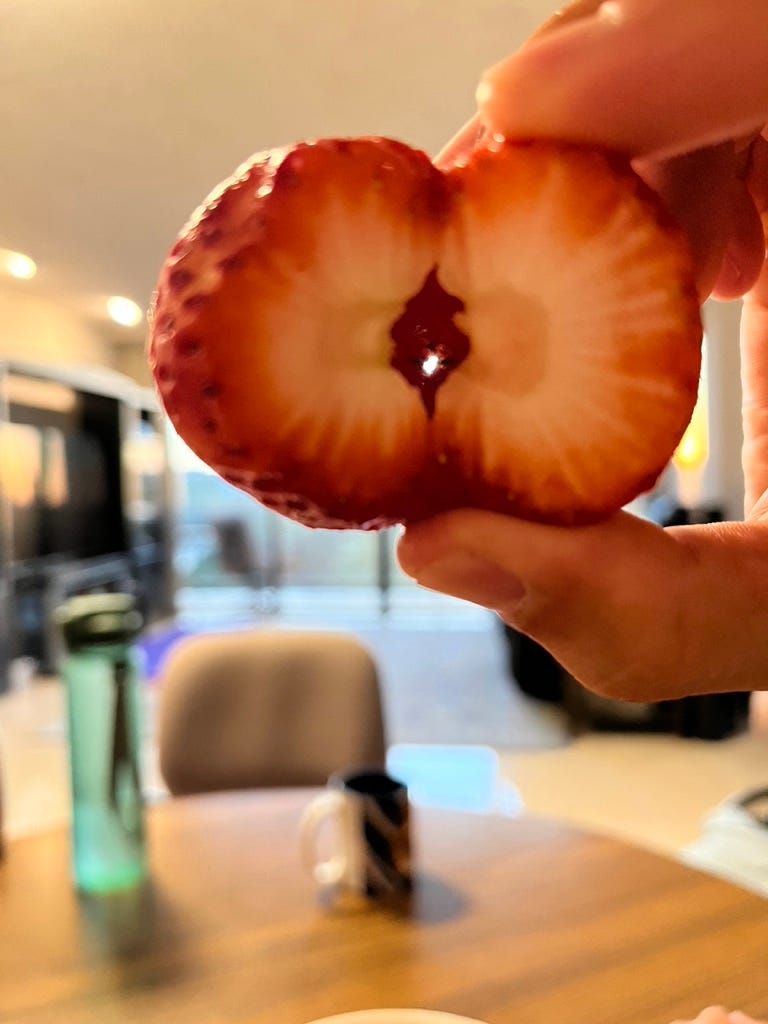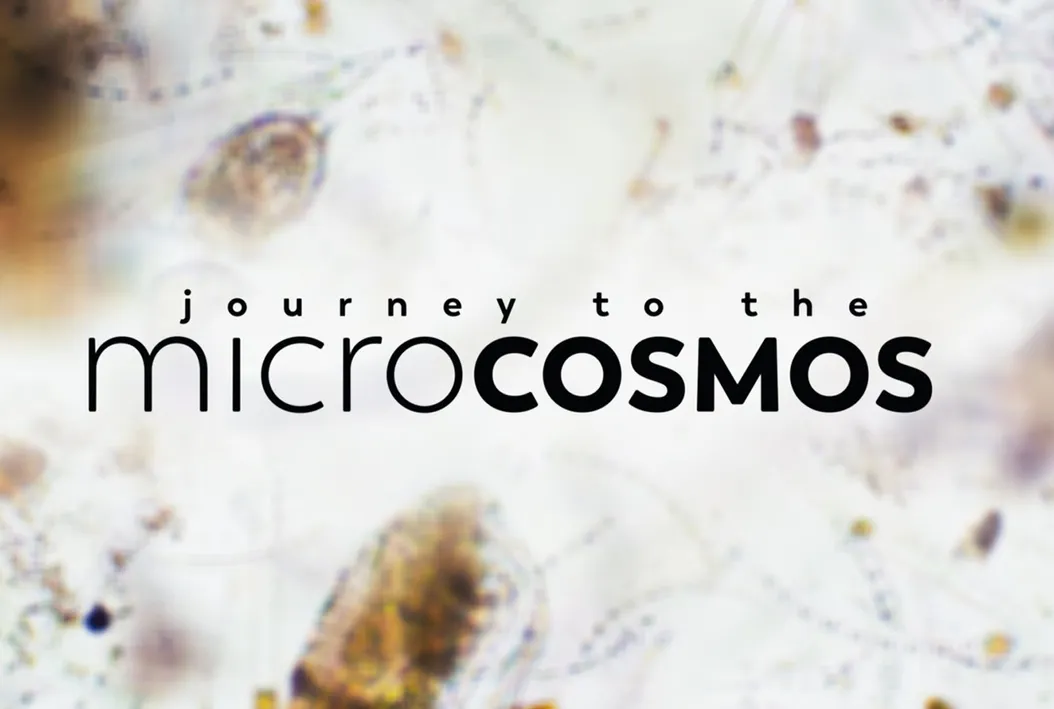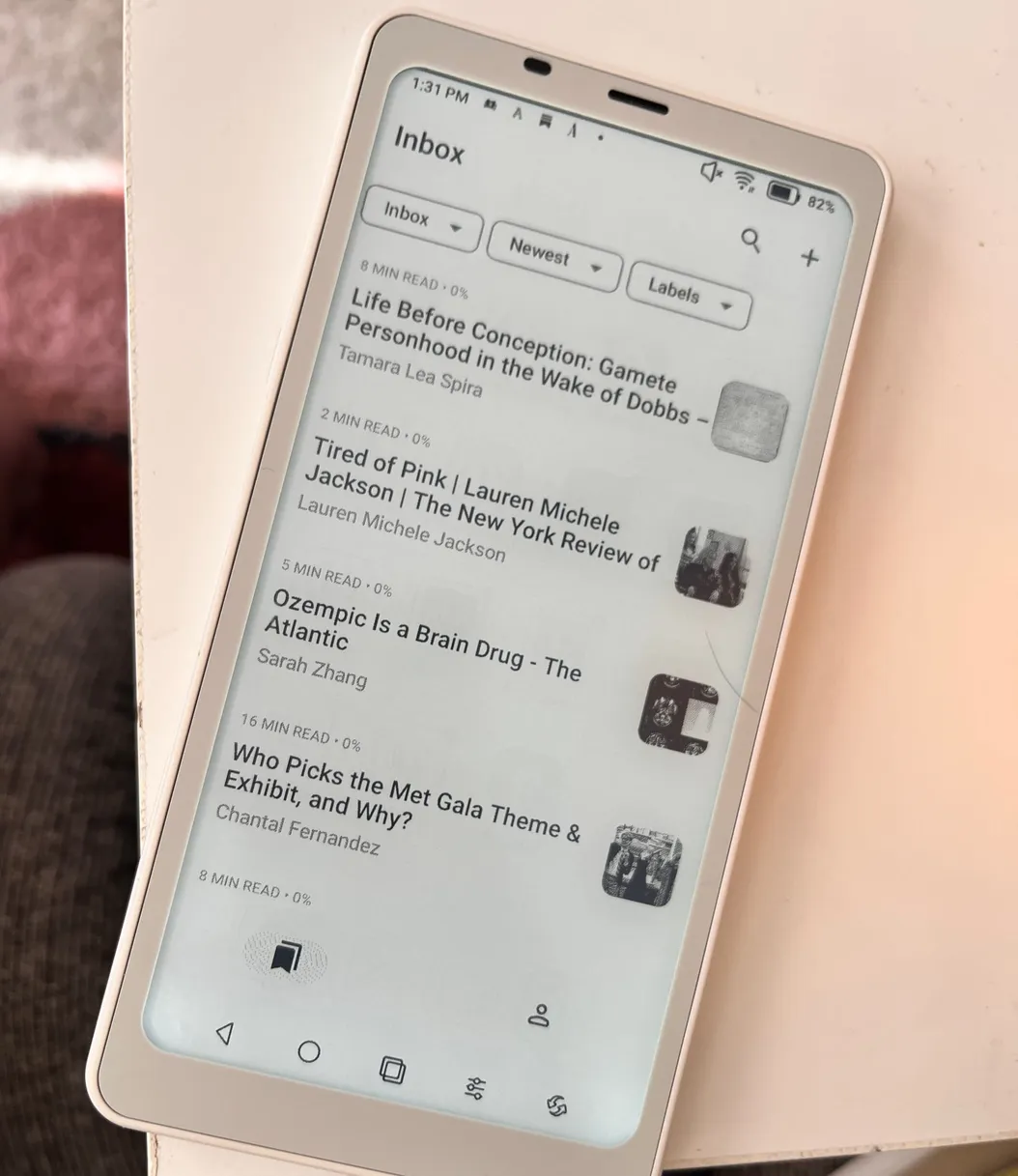I make things, but I’m also very bad at telling people when I make things, so here is a newsletter featuring a little list of things I’ve made recently that I’m pretty happy about. I’m also working on keeping an updates page going on my website, so all this information is also here.
And if you’re not here for links but wanted something for your troubles, here’s a picture of weird strawberry that looks like a telescope disguised as a butt

Are we alone in the universe? (Podcast):
For Tiny Matters, Sam and I interviewed the science writer Jaime Green about her book The Possibility of Life: Science, Imagination, and Our Quest for Kinship in the Cosmos. Green explores how we imagine life outside of our planet through questions explored by both scientists and science fiction writers, and it was great getting to hear how her own perspective of the universe shifted as she wrote the book.
Jaime Green: As I spent a lot of time in this research and thought about sci-fi in new ways, I've read sci-fi since I was 12, 14, something like that. But it's always just been fun. I'm not a literary scholar. I don't have a PhD in sci-fi studies. I don't have a PhD at all. But reading a bunch of sci-fi altogether and in this context and looking at it and seeing patterns and then reading some work by actual scholars and getting their frameworks as well, I started realizing that both the science and the sci-fi are ways of trying to figure out our place in the universe. What does our existence mean in context? Because what we really lack is context. We don't have other kinds of people to compare ourselves to. We don't have other examples of biospheres to compare Earth's life to.
Just Science Day with Deboki Chakravarti (Podcast):
It was a science day over on Dear Hank and John! Which meant that it was my turn to show up on the podcast to help Hank answer all sorts of questions, like what does water smell like? Are orange peels airtight? I also learned the weirdest fact I’ll ever learn about IVs.
Hank Green: I love laboratory studies about boredom. 'Cause people sometimes say that they don't get bored. Like, "I never get bored!" But, like, scientists can induce boredom so easily. They have procedures for it. They've got, like, games that they're like, "You have to play this game." And the game is just... so. Bad. It's like a computer game and you have to just do the same thing forever.
How Your Blood Keeps You Alive (Video):
I just love any chance I get to talk about the immune system. For this episode of Journey to the Microcosmos that I wrote and narrated, we talked about how blood takes on the immense challenge of protecting our bodies. We also talked about why red blood cells are so simple, and the complicated process of getting there.
How is it that our complicated, contradictory sense of self, recorded in literature and painting and film…how does all that come down to a fluid made up largely of the simplest cell in our body—a cell so singularly focused on its task of carrying hemoglobin that it actively has to get rid of the organelles and DNA inside of it?
The future of electronics: How small can we go? (Podcast):
For Tiny Matters, Sam and I took a step outside our comfort zone to learn about transistors and how they’ve shaped the history of computers. I wrote this episode based on a listener question about just how small transistors can get. But that ended up being one fascinating part of an even more interesting question: what does the future of transistors look like, and what does it mean for future technologies?
Sameer Sonkusale: The entire world is trying to make transistors smaller, more efficient, and that has to continue. That dimension is necessary because we are addicted to, you know, high speed computing. We can't wait for that video to download any faster. You want that video there in a microsecond as soon as you press the button. So we want high speed computing, we want processing, and with artificial intelligence and data machine learning, we want these computing engines to run even faster so that they can essentially compute much faster. So that's gonna happen. And I think that dimension is the reason why the silicon transistors are getting better and smaller and more efficient.
overfed on fandom (Newsletter):
For my newsletter (this newsletter actually), I wanted to revisit an essay I wrote a while ago about fandom that I ended up not doing anything with, but that has been feeling especially salient right now at a time when all my fandoms are in chaos.
When you are as prone to making everything about reality tv as I am, you end up in conversations with others who say things like, “Top Chef is my guilty pleasure.” These are not my people. I don’t understand the guilt, particularly for a show like Top Chef that attempts to showcase actual skill or talent. You may also end up talking to people express that reality tv is a thing they love to hate (I suppose its inverse—hate to love—drive those who think of reality tv as a guilty pleasure). These phrases are true for other people, but they are not true for me. The mistake, I think, is grammatical. The “to” should be an “and.” I hate, and I love. Sometimes my love looks like hate, and my hate looks like love, but one does not drive the other.
judging the fiction booktube prize for the first time (Video):
I’ve been on a sort of unofficial hiatus from regularly reviewing books for the past year or so, partly because I just haven’t read a lot of books that I feel like talking about. But I decided to challenge myself to judging the fiction category of the Booktube Prize this year so I could get out of my reading comfort zone, and spoiler: it was a good experience.
The reason why I decided to do this is because I have loved judging the non-fiction section so much, and I was like, “Why don’t I see if the things that I have loved about judging the non-fiction section will kind of apply to judging the fiction section as well.

